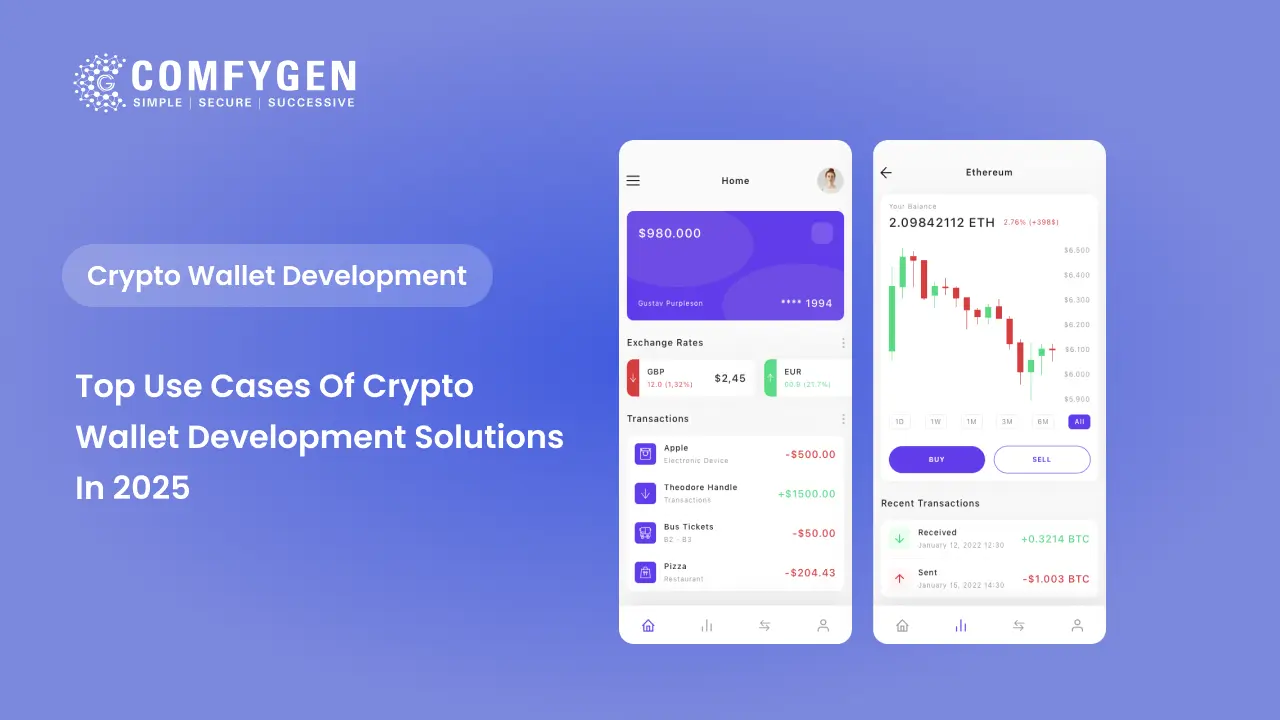Hybrid Crypto Exchange Development: Features, Benefits, Architecture & Market
Introduction
In the dynamic world of cryptocurrencies, the need for high-performance, secure, and user-centric trading platforms has never been more critical. While centralized exchanges (CEXs) offer speed and liquidity, and decentralized exchanges (DEXs) ensure privacy and autonomy, both have their limitations. Enter the Hybrid Crypto Exchange—a next-gen trading solution that fuses the strengths of both models into a single, scalable, and secure platform.
As we move into 2025, hybrid exchanges are poised to become the gold standard in crypto trading, especially as regulatory frameworks evolve and institutional adoption increases.
What Is a Hybrid Crypto Exchange?
A hybrid crypto exchange combines the best elements of centralized and decentralized exchanges. It provides the liquidity, speed, and regulatory compliance of CEXs with the privacy, control, and transparency of DEXs. Users can enjoy high-frequency trading while maintaining custody of their assets when needed, making it ideal for both retail and institutional traders.
Key Characteristics:
- Optional custodial wallets
- Integration of smart contracts
- Aggregated liquidity from multiple sources
- Advanced order-matching systems
- Regulatory compliance frameworks
Looking to build a
Future-ready hybrid crypto exchange?
Contact Now
Why Hybrid Exchanges Are Gaining Traction in 2025
Several factors are fueling the rise of hybrid exchanges in 2025:
- Institutional Adoption: Hedge funds, banks, and investment firms seek platforms that offer control, compliance, and performance.
- Regulatory Clarity: As more countries formalize crypto regulations, hybrid models are better suited for compliance.
- Demand for Flexibility: Users want the speed of CEXs with the freedom of DEXs.
- Security Concerns: Hybrid exchanges reduce the single point of failure seen in centralized models.
Core Features of a Hybrid Cryptocurrency Exchange
1. Dual Custody Models
Users can choose between custodial or non-custodial wallets.
2. Aggregated Liquidity
- Pulls liquidity from multiple exchanges (CEXs, DEXs, OTC desks).
3. Advanced Matching Engine
- Supports high-frequency trading and reduces slippage.
4. Smart Contract Integration
- Automates trading, settlement, and escrow services.
5. Compliance Modules
- Built-in KYC/AML and regional compliance capabilities.
6. Multi-Chain Support
- Seamless trading across Ethereum, Solana, BNB Chain, Cardano, and more.
7. Custom UI/UX
- Designed for diverse users—retail, institutional, and DeFi developers.
Benefits of Hybrid Crypto Exchange Development
- Enhanced Security: Multi-layer security protocols and optional custody reduce hack risks.
- Improved Liquidity: Access to a broader market pool ensures smoother trades.
- User Control: Traders can retain control over their assets while using a regulated platform.
- High Performance: Advanced order matching allows real-time trades without congestion.
- Scalability: Capable of handling increased traffic and trading volume.
- Regulatory Alignment: Easier to obtain licenses due to compliance-first design.
Hybrid Crypto Exchange Architecture
A well-designed hybrid exchange includes the following architectural layers:
1. Frontend Layer
- User dashboards, trading interfaces, KYC onboarding, analytics.
2. Backend Core
- Trade matching engine, liquidity manager, wallet management, APIs.
3. Blockchain Layer
- Supports smart contracts, token transactions, and multi-chain integration.
4. Compliance Layer
- Manages KYC, AML, and geo-restriction logic.
5. Data & Analytics Layer
- Tracks market trends, user behavior, and transaction histories for transparency.
CEX vs DEX vs Hybrid: 2025 Perspective
Instead of a reused table, here’s a narrative comparison tailored for 2025:
While CEXs remain dominant in terms of volume and liquidity, they are often criticized for centralized control and regulatory vulnerability. DEXs empower users but face scalability and compliance challenges. Hybrid exchanges merge both models—offering the control and privacy of DEXs with the performance and trust of CEXs—while also supporting OTC functionalities and multi-chain liquidity. In 2025, hybrid models are emerging as the most sustainable and versatile solution.
Use Cases of Hybrid Cryptocurrency Exchanges
- Retail Traders: Want seamless trading with optional custody.
- Institutional Investors: Require compliance and high liquidity.
- DeFi Protocols: Use hybrids for multi-asset liquidity.
- Cross-Border Remittance: Leverage hybrids for fast and secure global transactions.
- OTC Desks: Integrate with hybrid systems for back-end settlements.
Hybrid Crypto Exchange Development Process
- Requirement Analysis
- Tech Stack & Architecture Planning
- UI/UX Design
- Smart Contract & Backend Development
- Liquidity Aggregation & Engine Setup
- Compliance Integration (KYC/AML)
- Testing & QA
- Deployment & Support
Market Potential in 2025
The hybrid exchange market is on a growth trajectory:
- Global Crypto Adoption: Over 1 billion users expected by 2025.
- Institutional Trading: Projected to account for 60% of crypto volume.
- Regulatory Shift: Governments are warming up to hybrid-compliant platforms.
- VC Investments: Increased funding for platforms supporting compliance and liquidity.
Challenges & Considerations
- Technical Complexity: Integrating CEX and DEX features requires advanced architecture.
- Regulatory Risk: Constantly changing laws across jurisdictions.
- User Education: Onboarding users unfamiliar with hybrid models.
Why Choose a Hybrid Cryptocurrency Exchange Development Company?
- Domain Expertise: Proven experience in both CEX and DEX platforms.
- End-to-End Services: From UI to backend and compliance support.
- Regulatory Knowledge: Adheres to region-specific legal frameworks.
- Security-First Development: Protects both platform and user assets.
Ready to Lead the
Next Wave of Crypto Innovation?
Contact Now
Conclusion
In 2025, hybrid crypto exchanges are not just an innovation—they are a necessity. By combining the best aspects of CEX and DEX platforms, hybrid models offer unmatched security, performance, and flexibility. Whether you’re a startup, institutional investor, or DeFi innovator, developing a hybrid crypto exchange will position you at the forefront of the blockchain revolution.
Frequently Asked Questions (FAQs)
What is a hybrid cryptocurrency exchange?
How does a hybrid exchange differ from CEX and DEX?
CEXs are centralized and manage user funds, while DEXs offer peer-to-peer trading without intermediaries. Hybrid exchanges blend both: they provide high liquidity and speed like CEXs and allow optional custody, smart contracts, and decentralization like DEXs.
What are the benefits of hybrid crypto exchanges in 2025?
Key benefits include improved security, regulatory compliance, better liquidity through aggregation, scalable performance, and flexibility for both retail and institutional traders.
Is hybrid cryptocurrency exchange development costly?
Development costs vary based on features, architecture, tech stack, and customization level. On average, building a full-featured hybrid exchange in 2025 can range from $50,000 to $250,000+, depending on your requirements.
Are hybrid exchanges secure?
Yes. They implement multi-layer security protocols such as two-factor authentication (2FA), cold wallets, smart contract audits, and encryption, offering better security than typical centralized platforms.
What technologies are used in hybrid crypto exchange development?
Technologies include blockchain frameworks (Ethereum, Solana, BNB Chain), smart contracts, matching engines, liquidity aggregators, Node.js/React for frontend, and backend systems like Golang or Rust.
Can hybrid exchanges support institutional trading?
Absolutely. Hybrid exchanges are ideal for institutional investors, offering high-frequency trading, advanced analytics, regulatory modules, and robust API access for integration with external tools.

Mr. Saddam Husen, (CTO)
Mr. Saddam Husen, CTO at Comfygen, is a renowned Blockchain expert and IT consultant with extensive experience in blockchain development, crypto wallets, DeFi, ICOs, and smart contracts. Passionate about digital transformation, he helps businesses harness blockchain technology’s potential, driving innovation and enhancing IT infrastructure for global success.
Based on Interest

Grocery Delivery App Development Challenges: Common Problems and How to Overcome Them
In today's fast-paced digital age, the online grocery delivery industry is experiencing significant growth. With consumers preferring doorstep facilities over traditional shopping,…









